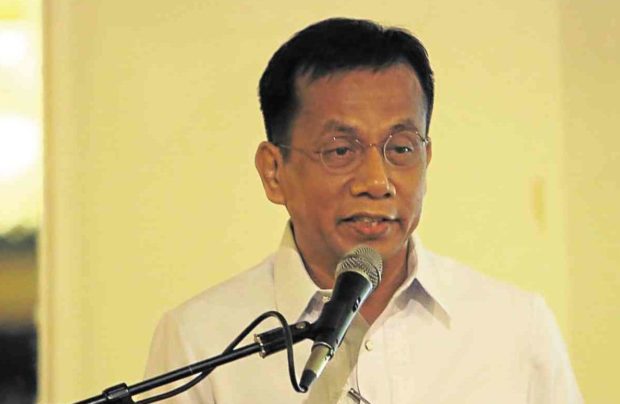MANILA, Philippines—The country’s chief economist on Friday (Aug. 19) urged the private sector to play a bigger role in job creation and infrastructure development to help the economy sustain high growth.
“We see the private sector playing a significant role in bringing in the necessary investments that will lead to high-quality job creation, increasing the share of wage and salaried workers from 48 percent in 2021 to a range of 53-55 percent by 2028,” Socioeconomic Planning Secretary Arsenio Balisacan told members of the Management Association of the Philippines (MAP) during an economic briefing.
The Marcos administration aims to reduce unemployment rate to 4 to 5 percent by 2028 through higher quality jobs, alongside gross domestic product (GDP) growth of 6.5 to 7.5 percent this year and a more ambitious range of 6.5 to 8 percent yearly from 2023 to 2028.
Balisacan, who heads the state planning agency National Economic and Development Authority (Neda), highlighted the private sector’s part in equipping the labor force for the jobs of tomorrow. “To ensure that students will be qualified for higher-quality jobs, there must be closer coordination with the private sector with respect to job facilitation and skills development programs,” the Neda chief said.
Balisacan also reiterated the larger role of private investors and tycoons with deep pockets in the Marcos administration’s infrastructure development program, to achieve record-high spending equivalent to 6.3 percent of GDP in 2028.
“Given our current fiscal constraints, we will use PPPs [public-private partnerships] to harness the private sector’s expertise, resources, and capacity to substantially upgrade the country’s infrastructure,” Balisacan said.
“To ensure that the benefits of economic growth are inclusive, we will prioritize solicited projects that fit into approved master plans and will connect leading and lagging regions,” he said.
“Plans are underway to review the amended Build-Operate-Transfer (BOT) law’s implementing rules and regulations (IRR) to address the issues and concerns raised in various fora that the rules are hindering investors from participating in PPPs,” Balisacan added.
Balisacan was referring to President Ferdinand Marcos Jr’s recent approval of a review of supposedly “anti-market” guidelines for PPP projects under Republic Act (RA) No. 7718, which was left behind by the Duterte administration.
According to Balisacan’s presentation, Neda, in coordination with other agencies, will conduct a “thorough” review of the amended BOT law’s IRR “to address the private sector’s concerns on the viability of PPPs while upholding the government’s objective of protecting public interest.”
“Upon the President’s designation of the BOT IRR committee chairperson, the chair will convene the committee to formulate amendments to the revised IRR,” Balisacan’s presentation read.
“PPPs will be utilized to address the binding constraints to more and higher-quality job creation in present and future growth drivers. They will be a major contributor to the upgrade of our energy, logistics, transportation, telecommunications, and water infrastructure,” the Neda chief said.
As a whole, Balisacan said “the government is mindful of the significant role that the private sector plays in increasing productivity, driving innovation, creating job and market opportunities, and addressing the long-standing and emerging issues our country faces.”
“There is no compelling reason to believe our country cannot reach its long-term ambitions. We can make it happen through robust partnerships between the public and private sectors,” Balisacan said.
